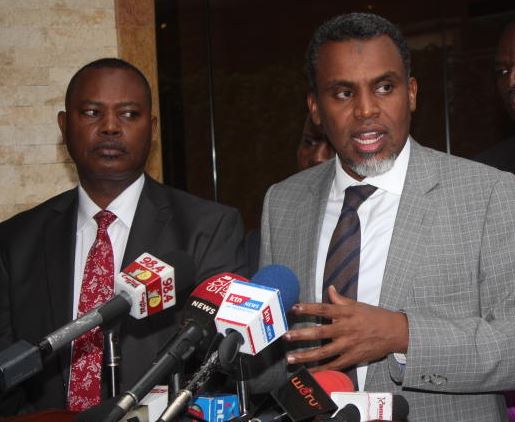×
The Standard e-Paper
Home To Bold Columnists

A showdown looms between Director of Public Prosecutions Noordin Haji and Deputy Chief Justice Philomena Mwilu tomorrow as he appears as a witness before the Judicial Service Commission (JSC).
Mr Haji and Directorate of Criminal Investigations (DCI) boss George Kinoti, who is an interested party in the petition seeking Justice Mwilu’s removal from office, are expected to give their evidence and be examined by her lawyers.